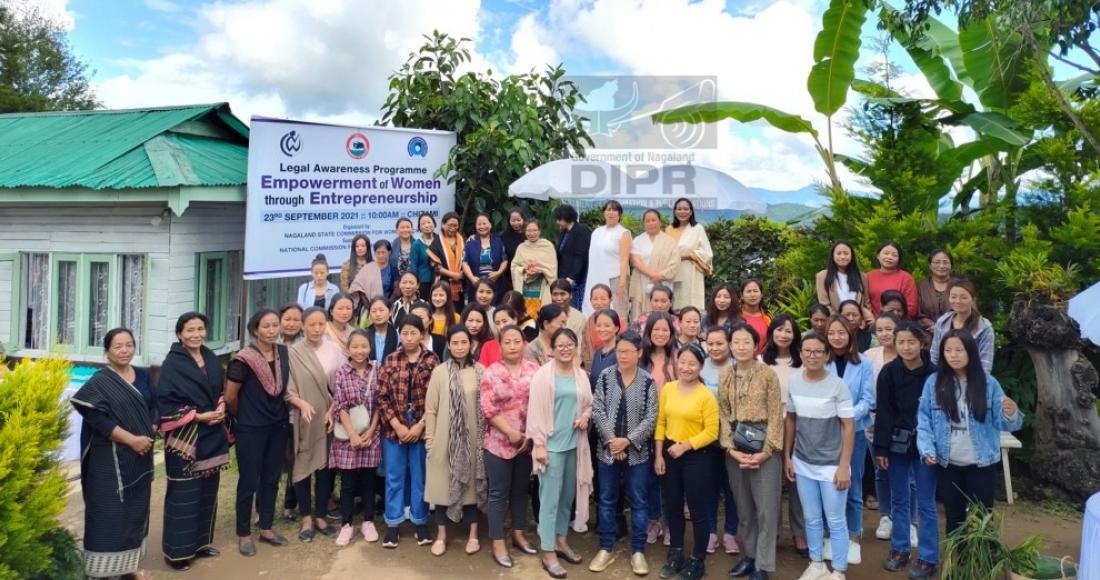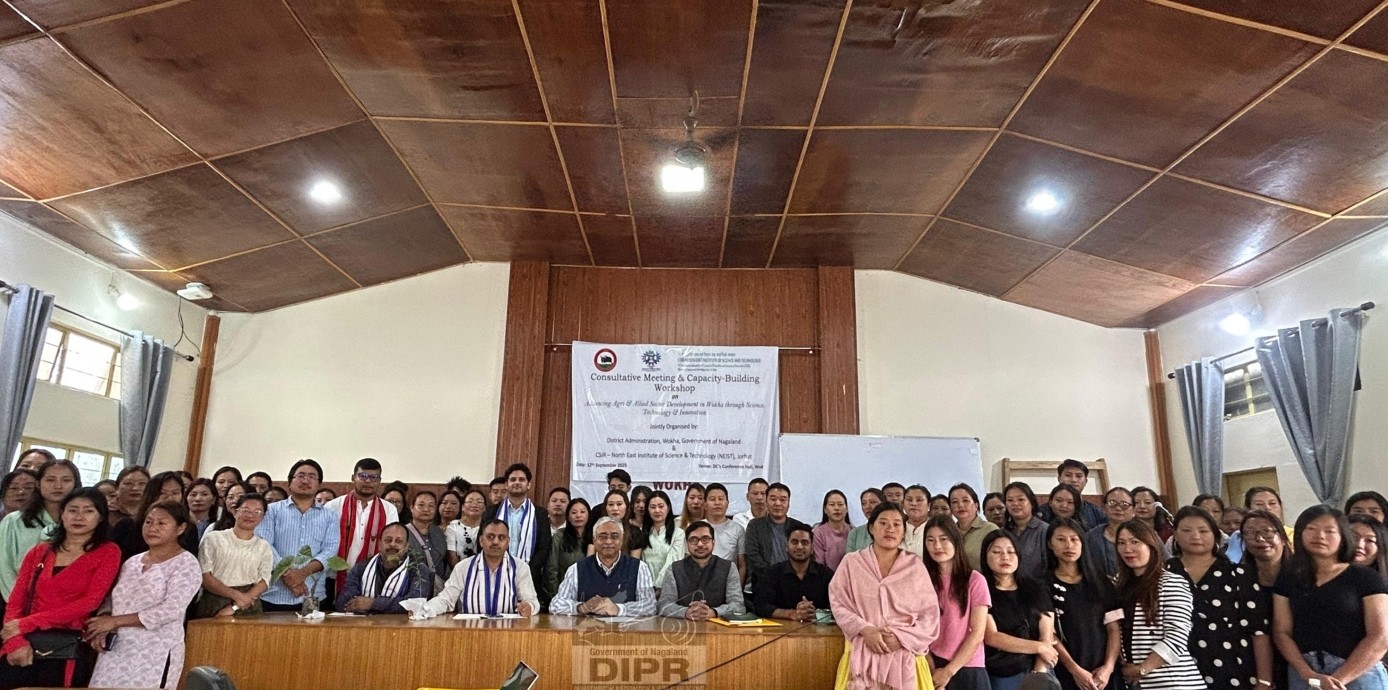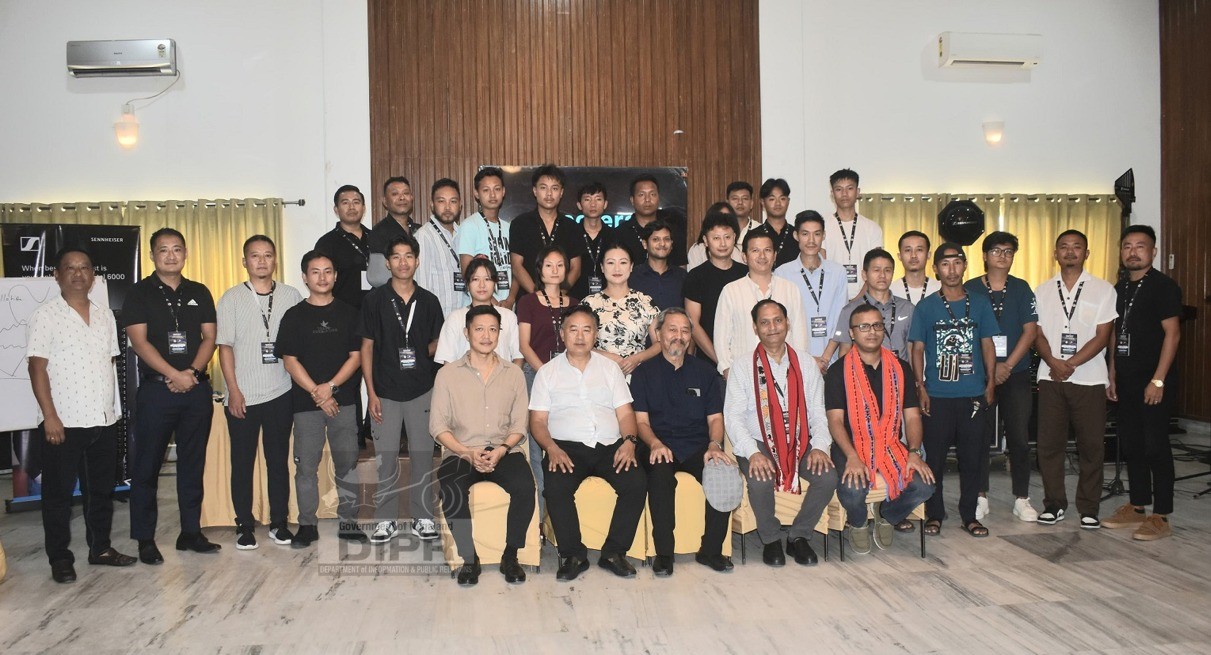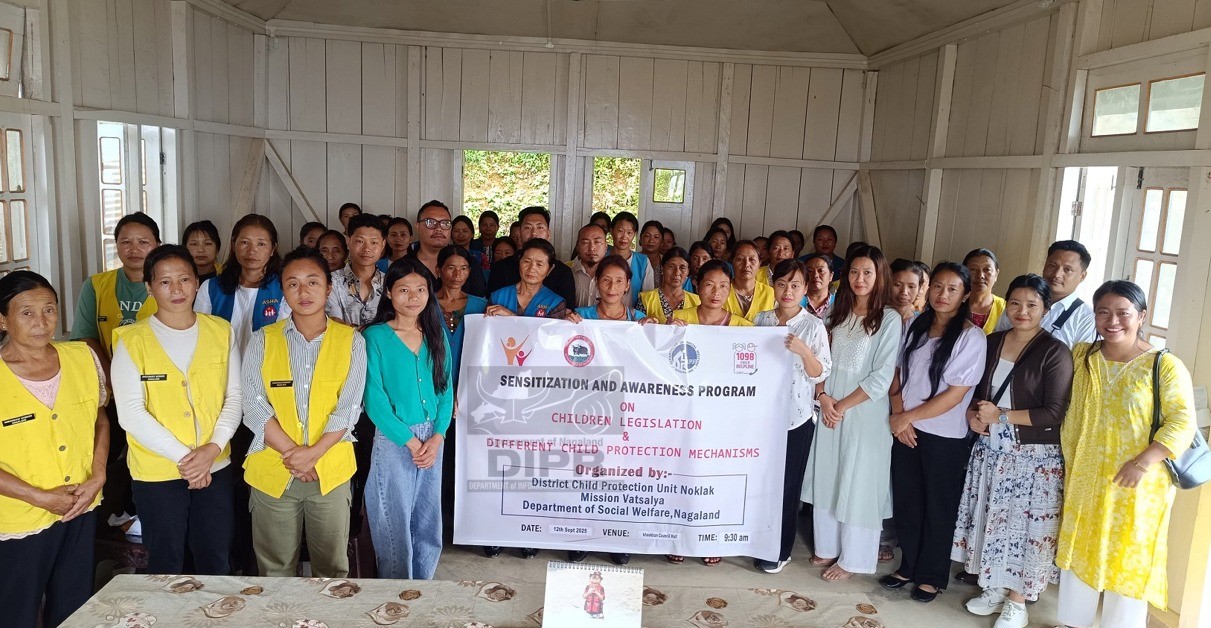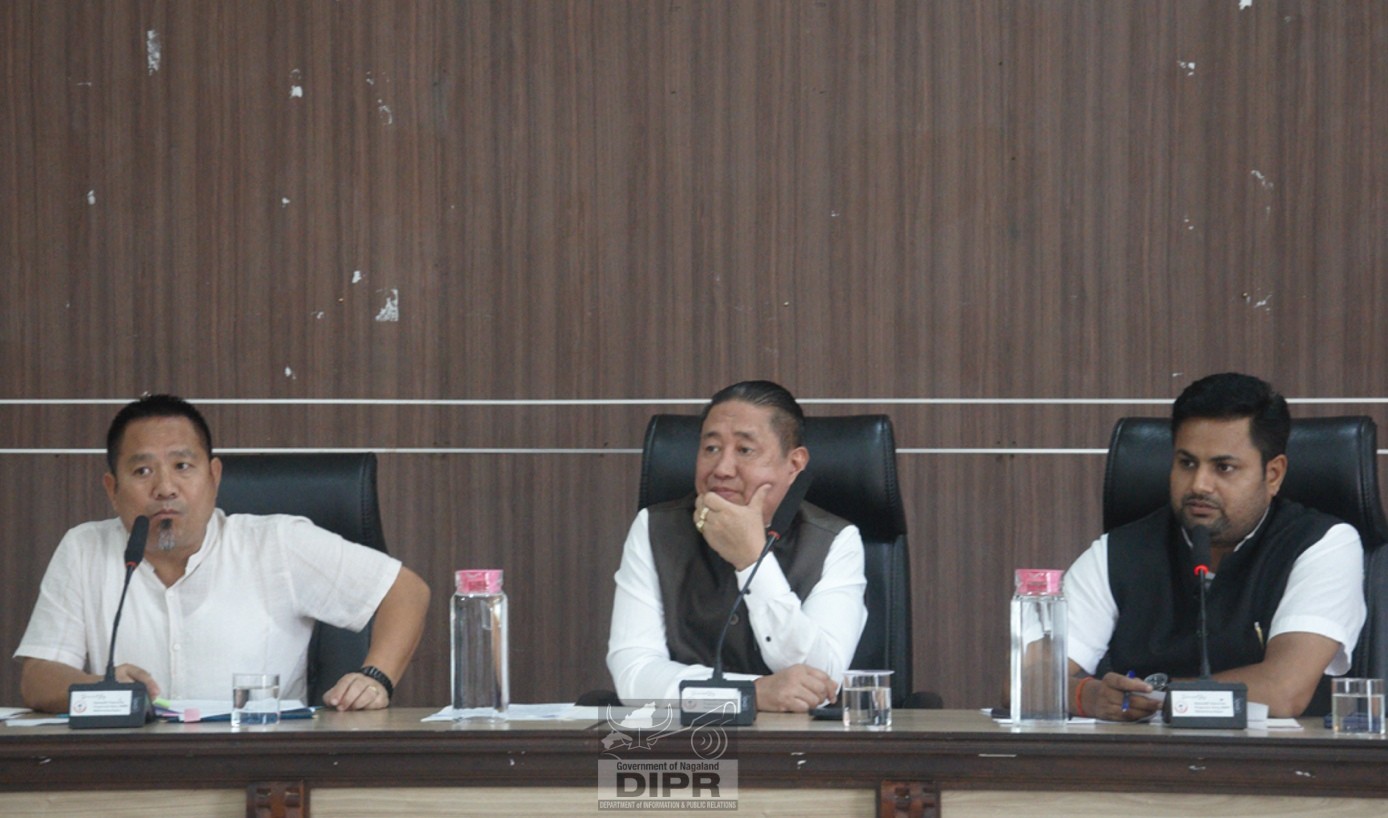A one-day Legal Awareness Programme on Empowerment of Women through Entrepreneurship was organised by Nagaland State Commission for Women (NSCW) on 23rd September 2021, Chizami in Phek district, Nagaland. Supported by the National Commission for Women (NCW), the programme was attended by participants, existing and aspiring women entrepreneurs from Chizami Town and neighbouring villages.
The NSCW led by the Chairperson Khrienuo Tachü and Bodeno S Colo, Secretary NSCW and Joint Secretary, Social Welfare Dept met with the Chizami Village Council leaders led by the VCC Kewepelo Tsühah and appreciated them for including women in the Village Council and VDB as full fledged members and for following ‘equal wage for equal work’ principle in the village. The NSCW also extended financial assistance to the oldest man and woman of the village through the Village Council. The NSCW team further visited the CHC Chizami and interacted with the MO Dr Yelo T Mero, staff and the patients and contributed to help start a ‘Patient’s Welfare Fund’ for the CHC. They also visited NEN Resource Centre and interacted with the staff of Chizami Weaves and encouraged them to keep up the good works in helping women and community at large.
During the programme, Khrienuo Tachü, Chairperson, NSCW, in her keynote address stated that NSCW is committed to the empowerment of women and girls. She highlighted that there is a common perception that Naga women enjoys high and equal social status with men but in reality, Naga women continue to struggle and face multiple barriers owing to discriminatory customary practices. She noted that our women do not have inheritance rights and almost no participation in decision making in public spaces such as the Village Council at the grassroots, and therefore ‘economic empowerment for women becomes critical to overcome such barriers’. She lauded Chizami village for including women in their decision making bodies. She added, when women become financially independent and stand on her own feet, she will be respected in the society and will claim her rightful space in the society. She encouraged the participants to develop entrepreneurial skills, be focused and passionate, and to uphold the value of dignity of labour.
Weko-u Mero, Asst. Legal Remembrancer and Under Secretary, Justice and Law department, Govt. of Nagaland, facilitated the session on ‘Women Legal Education’. She highlighted the various legal rights for women guaranteed by the Indian Constitution, such as, the Code on Wages 2019, Indecent Representation of Women Act, Sexual Harassment of Women at Workplace Act 2013, Protection of Women from Domestic Violence Act (PWDVA) 2005, Medical Termination of Pregnancy (MTP) Act, Protection of Children from Sexual Offences Act (POCSO) 2012, Maternity benefit (Amendment) Act 2017.
Dr. Visakhonü Hibo, Principal Japfü Christian College facilitated the session on ‘Vocational Education – Upskilling and Reskilling’ where she encouraged the participants to develop skills and utilise our rich biodiversity i.e plants, fruits, livestock etc for enhancing one’s livelihoods. She also shared and demonstrated several food processing recipes using indigenous fruits, spices and plants. Further, she highlighted the need to maintain hygiene, quality control, use good packaging, develop marketing skills to make any enterprise a successful enterprise.
Speaking on ‘Naga Textiles – Chizami Weaves and Livelihood opportunities’, Seno Tsühah, Honorary Member, North East Network (NEN) shared the case study of Chizami Weaves (CW) – its objectives, the journey of CW in enhancing the earning capacities of women towards sustainable livelihoods and social justice, and the lessons learnt. She emphasised on the need to develop a good plan before starting any business enterprise – to explore opportunities, identify an area of interest, locating assets, develop a business plan that includes a good marketing strategy amongst others.
Colo Mero, Director, Life Ministries presented on ‘Entrepreneurship - Opportunities and Challenges’. He stressed on the need to prepare our children for entrepreneurship or any other livelihood options by imparting life skills and values of hard work at a young age, that starts from home as this is foundational.
The programme was chaired by Bodeno S. Colo, Secretary, NSCW and Joint Secretary, Social Welfare Department. Vote of thanks was proposed by Apele Tsuhah, Chairperson, Chizami Women Society. The proceedings were recorded by the program rapporteur Wekoweu Tsühah, State Coordinator NEN.
(DIPR)


